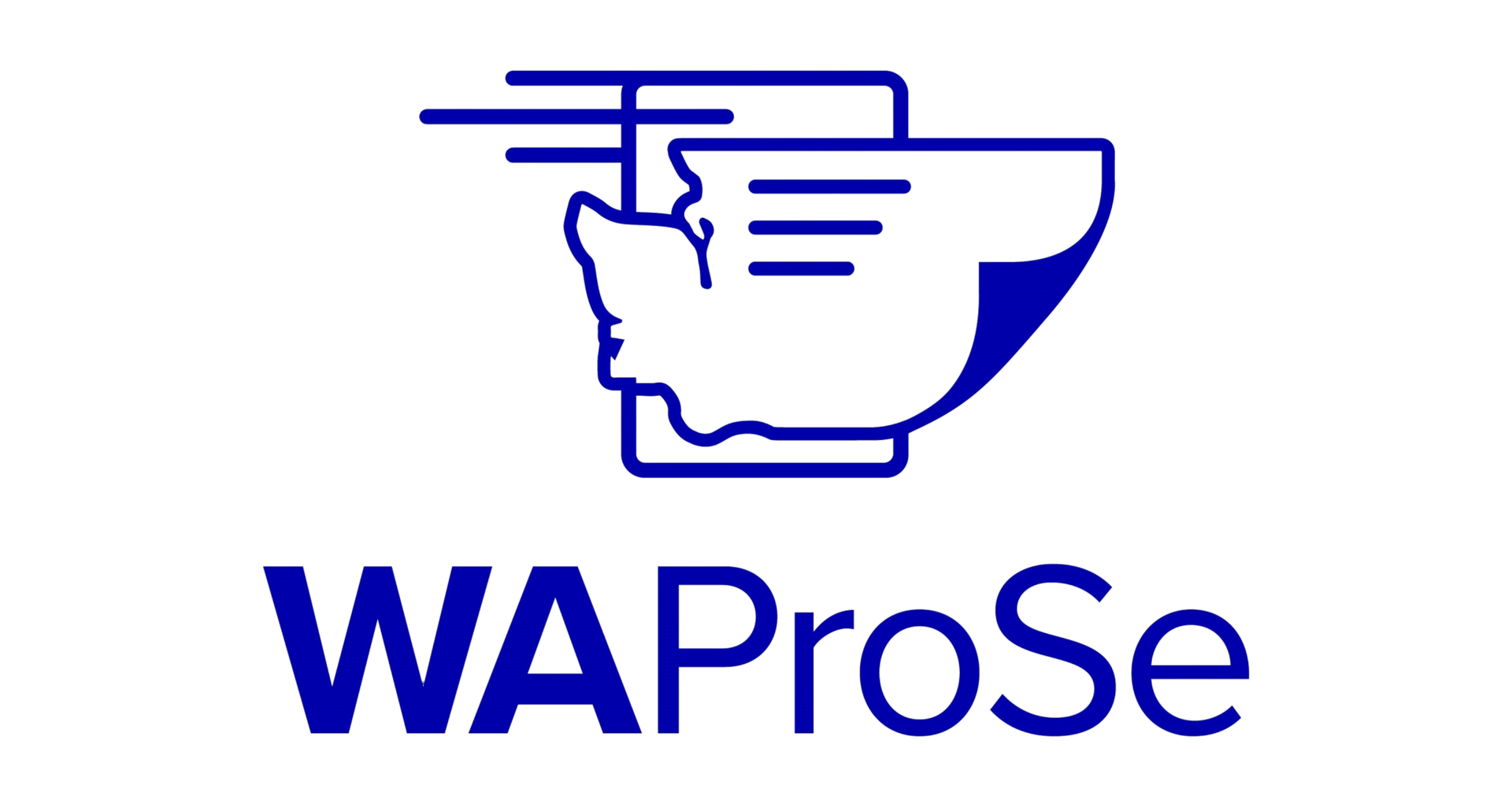The Perils of Evading a Process Server: How Hiding and Avoiding Being Served Legal Documents Worsens Your Situation
Avoiding a Process Server Serving Legal Papers

We’ve all heard stories of people dodging process servers like they're secret agents on a covert mission. And while the impulse to evade legal documents might seem like a quick fix, the long-term consequences are anything but simple. Hiding from a process server doesn’t just delay the inevitable—it can profoundly impact your mental health and complicate your legal situation. Here’s why you should face the process head-on and how doing so can be the first step toward moving forward with your life.
Table of Contents:
- The Constant State of Paranoia
- The Ripple Effect on Your Life
- Trusting the Process
- Moving Forward
The Constant State of Paranoia
Imagine living in a perpetual state of alertness, always glancing over your shoulder or nervously peeking out your window. The curtains are always closed, and the light of day rarely shines into your home. This is the reality for many people who choose to evade a process server. The fear of being served can quickly morph into a constant state of paranoia, affecting every aspect of your life. You might find yourself obsessively checking your mail, avoiding answering your door, or even changing your daily routines to avoid an unexpected visit.
This kind of stress doesn’t just take a toll on your mental health; it can lead to physical symptoms as well. Chronic anxiety, insomnia, and an overall sense of dread can make it hard to focus on daily tasks, maintain relationships, and even enjoy activities you once loved. The emotional burden of living in fear can create a vicious cycle, where the act of hiding itself becomes a source of additional anxiety.
The Ripple Effect on Your Life
Hiding from a process server doesn’t mean the legal issue will disappear. In fact, it often makes things worse. Delaying the service of legal documents can lead to additional legal complications and potentially more severe consequences. For example, if you're being sued and avoid being served, the court might proceed with a default judgment against you. This means the court could rule in favor of the plaintiff without your input, often resulting in unfavorable outcomes that could have been avoided had you addressed the situation promptly.
Moreover, evading a process server can escalate the situation, making it more complex and costly to resolve. Legal fees, court costs, and potential penalties can pile up, making the situation even more daunting. What might seem like a way to avoid immediate discomfort can end up creating a much larger and more complicated problem.
Trusting the Process
Facing the process and dealing with legal issues directly can actually be empowering. Although it might feel daunting at first, getting served legal documents is just one step in a larger process. Once you confront the issue, you’ll have the opportunity to address it, negotiate, and potentially resolve it in a way that is more manageable than you might expect.
Legal systems are designed to handle disputes and issues efficiently once they are brought to light. By addressing the situation head-on, you can work through the legal process and find a resolution more quickly. This not only alleviates the stress of constantly being on edge but also allows you to move on with your life.
Moving Forward
The best way to handle being served is to embrace the process like an adult rather than avoiding it. By confronting the legal situation directly, you can reduce your anxiety and take control of your circumstances. When you purposefully choose to have no part in the process, you have lost 100% control over what is going on. Consult with a legal professional to understand your options and navigate the process. Often, resolving legal issues promptly can help you get back to focusing on the things that truly matter in your life. There are resources available to help if you cannot afford to hire an attorney.
Remember, while facing legal issues might not be pleasant, evading them can make matters worse. By addressing the situation with honesty and proactive steps, you can bring closure and peace of mind, allowing you to move forward with your life unburdened by the constant fear of being found.

May I drop off paper copies of my legal documents in-person to the WA Pro Se office in Edmonds, WA?
Our office hours are By Appointment Only.
Here in the FAQ, it is explained how to scan and upload documents for service. Although we would love to meet you, we are often out in the field serving, so please call instead of stopping by first.
How do I get the legal documents and paperwork to you?
- The easiest way for us to receive your documents for service is to upload them electronically through our website's order form.
- If you only have a paper copy, you will need to scan them at your local library or local printing store. There, a staff member should be able to help you save them electronically so you can upload them.
- Alternatively, you can scan and email them directly from the printing store. Another option is to contact us to arrange an in-person pickup time.
- In certain circumstances, you may mail them to us as long as we have spoken with you beforehand and arranged for service before you send them off.
What payment method options are available? How do I pay?
For the majority of cases, we require prepayment from customers in order for attempts to begin. The quickest option is to pay online through our website's order form by using a debit or credit card. If you contact us, we also accommodate ACH payments or bank transfers and checks.
What happens after WA Pro Se attempts to serve the documents to the other party?
- After each service attempt, we will personally update you on whether or not the attempt was successful. If the attempt was not successful, we will continue trying to serve the documents on another day while gathering information from whoever we spoke with and/or neighbors. This is fairly common if the daily whereabouts or schedule of the other party is not known well.
- There will be up to four attempts completed at different times of the day (morning, afternoon, evening, weekend). After the party is successfully served, you will be notified.
- Within 24 hours of completion of service, you will receive an Affidavit of Service. This can also be known as a Declaration of Service or Proof of Service. This legal document details the service and describes the person served and can include a photograph of where the service took place. The process server who performed the service signs and dates the document, and it is then filed, either by the customer or by WA Pro Se with the court.
- If you need WA Pro Se to file the document, this is arranged prior to service by adding it to your online order.
How many times will a WA Pro Se private process server try to serve someone?
- There will be up to four attempts completed on different days at different times of the day (morning, afternoon, evening, weekend).
- In the rare occasion that the four attempts were unsuccessful, another round of attempts may be performed or alternative methods of service as permitted by law can be explored.
- If you're facing a situation where you expect to be served, it's usually best to address it proactively as the inevitable is only being delayed when you avoid getting served.
Is there a way to serve someone if they are actively avoiding being served?

If service has been attempted before, and another process serving company was unable to complete the service due to the person evading or avoiding being served, WA Pro Se will walk you through the process of considering other options for having them served. We come up with creative solutions to get the job done and have tried and tested methods that result in successful service.
I need to serve someone but I don't know where they are. Can you help?
 Skip Tracing Services
Skip Tracing ServicesWe specialize in skip tracing and locate services, designed to track down individuals who are difficult to find, particularly when it comes to process serving. When placing your order via our online order form, you can add this service.
How much does hiring a process server cost?
The cost of hiring a process server can vary based on several factors, including location, the complexity and speed of the job, and any additional services required. Please visit our Service of Process page to learn more.
What should I do after getting served legal documents?
 Visit our blog
Visit our blogReceiving legal documents from a private process server can be an unsettling experience, but knowing how to handle them efficiently is crucial for managing your legal situation. Remember to take everything one step at a time. To learn more, read about the basic steps here in our blog post.
Can a process server serve someone legal documents at their work?
Yes, a process server can serve legal documents at a person's workplace, as long as it is done in accordance with local laws and regulations. However, some jurisdictions may have specific rules about serving documents in a workplace, such as ensuring it does not disrupt business operations or violate the recipient's privacy. Some states may even allow a co-worker to be served on a person's behalf.
Will I get in legal trouble for avoiding a process server?

We’ve all heard stories of people dodging process servers like they're secret agents on a covert mission. While the impulse to evade legal documents might seem like a quick fix, the long-term consequences are anything but simple. Read more about the downfalls of avoiding a process server here on our blog.
What is due diligence when it comes to process serving?
In Washington State, "due diligence" refers to the efforts made to locate and serve a person with legal documents, especially when the individual is difficult to find. This can include a variety of actions, such as:
- Hiring a process server to make multiple attempts at last known address: Attempting to serve the documents at different times and days.
- Checking Public Records: Looking up the person's address through public records, such as voter registration or property records.
- Contacting Known Associates: Reaching out to family members, friends, or co-workers to obtain updated contact information.
- Using Online Resources: Utilizing online databases or social media to gather information on the person's whereabouts.
- Ordering a skip trace and locate service to find the most recent address of the individual.
After WA Pro Se demonstrates that reasonable and good-faith efforts have been made to locate and serve an individual, you may be able to request alternative service methods, like service by publication. It is essential to follow the specific guidelines set forth in Washington State's civil rules regarding service of process.
Resource: Service by Certified Mail or Publication
How do I serve someone by publication?
After WA Pro Se demonstrates that reasonable and good-faith efforts have been made to locate and serve an individual, you may be able to request alternative service methods, like service by publication. It is essential to follow the specific guidelines set forth in Washington State's civil rules regarding service of process.
Resource: Service by Certified Mail or Publication
Can I serve someone by mail?
Service by Mail- Yes, in Washington state, someone can be served by mail under certain circumstances. This is typically allowed for specific types of cases. The process involves a process server sending the legal documents via certified mail with an electronic return receipt requested in addition to sending them via first class mail.
- For service by mail to be valid, the recipient generally needs to sign for the documents to confirm receipt. If they do not respond or refuse to accept the documents, additional steps may be necessary to ensure proper service.
- It is important to follow the specific rules outlined in Washington’s Civil Rules to ensure that service by mail is executed correctly. Consulting with a legal professional can help clarify the process for your particular situation.
How do you serve someone by email or electronic service?
Electronic Service- In Washington State, service by email is not generally allowed off the bat for most types of legal documents. However, there are some exceptions, particularly if the recipient has agreed to accept service via email or if it is specifically permitted by a court order.
- For most cases, traditional methods like in-hand service, service by mail, or other approved methods are required. If you believe digital service might apply to your situation, it’s best to consult Washington’s Civil Rules or seek legal advice to ensure compliance with the law.
- If e-service is permitted in your case, WA Pro Se has the technology to electronically serve your legal documents. A declaration of service will be provided, including the person who signed for the emails if acknowledged, when they were opened, and the IP address.
What is a process server in WA?

In Washington state, a private process server is an individual or business authorized to deliver legal documents to parties involved in a court case. This typically includes serving summonses, complaints, subpoenas, and other legal notices. The goal of the independent process server is to ensure that the recipient is properly notified of legal actions affecting them, in accordance with state laws.
What is a day in the life of a process server like in Washington?
A process server's workday is certainly unique and includes driving, administrative work, and a lot of planning. Read more about our daily routine here on our blog.
Can someone just leave court papers at my door?
Court papers could be left at your door with or without you present, but only under certain circumstances. The answer to this question requires more information to be provided, such as the type of document, the document's court of origin and service attempt history on the respondent or defendant. Each case is unique and requires service to be executed according to the specific jurisdiction of origin.
What do I do if I was not served properly by a process server in Washington?
If you believe that you have been improperly served by a process server in Washington, it’s crucial to know how to contest or quash the service in Washington courts. Read our full article on contesting getting served here in the WA Pro Se blog.
Who can serve legal documents in Washington State?
Hire a Process ServerIn Washington State, the rules governing the service of legal documents can be found in the Revised Code of Washington (RCW) 4.28.080. This section outlines that service may be performed by a process server such as WA Pro Se, sheriff, or any individual over the age of 18 who is not a party to the case. Additionally, RCW 4.28.100 provides further details on the methods and requirements for serving various types of documents. It’s crucial for the server to complete a declaration of service to confirm proper delivery.
Am I required to answer the door for a process server in Washington?
A process server in Washington cannot force you to answer the door. However, if you do choose to evade service, you are only delaying the inevitable. Just know that what happens at the time of attempt is recorded in writing by the process server who then submits this record to the court. You should take into consideration that it will be read by the judge on your case. Read more about how delaying the legal process can worsen your situation at the WA Pro Se blog.
How do I find a process server near me?
When you need to serve legal documents, whether it be a summons, complaint, or eviction notice, finding a reliable process server is crucial. Head over to our blog post for insightful tips on finding and hiring the right process server. Hint: Excellent customer service is everything!
What are common mistakes to avoid when serving process?
Some common mistakes when serving legal papers can include serving someone on a day that is not permitted, failing to properly write a declaration of service after someone is served, and believe it or not, serving the wrong person.
Can a process server call you?
Yes, a process server may call you. Oftentimes, this may be unexpected and seem like a scam. The reason a process server would call you is to arrange a time to serve you legal documents at your address. They may also need to confirm your address. If this happens to you and you are suspicious, consider asking key questions to see if the process server is legitimate or not.
What does being served mean? Is it a real thing?
About Process ServingIn legal terms, being "served" refers to the formal delivery of legal documents, such as a summons or complaint, to a person via a process server. This means they are officially notified of legal action against them, which may be expected or come unexpectedly. The person served will then need to respond to the other party via a process server like WA Pro Se.
How do I contest getting served legal documents?
Read Full ArticleIf you believe that you have been improperly served by a process server in Washington, it’s crucial to know how to contest or quash the service. Here’s a guide on how to proceed:
Can a minor be served legal documents?
Minors can be served legal papers under certain conditions depending on the type of court document and its jurisdiction of origin.
What should I do if I receive court papers from a process server?
If you receive legal documents from a process server, consider taking these steps:
1. Identify the Court Where the Documents Were Filed
2. Find the Deadline for Your Response
3. Determine the Required Forms
4. File Your Response with the Court
5. Serve the Other Party
Here’s the WA Pro Se step-by-step guide for after getting served papers to help you navigate the process.
What time can a process server serve papers in Washington state?
A process server can serve legal documents at any time of the day in Washington state. However, if the court papers being served in Washington are under another state's jurisdiction, the permittable hours of process service can vary. Additionally, legal papers cannot be served at any hour at all on Sundays in Washington for documents originating from certain states such as Texas and Florida.
Can I serve legal papers myself?
If you are 18 or older and not involved in the case, and if you are an uninterested third-party, you may be able to serve the court papers yourself as long as you are versed in methods of process serving.
Our blog article provides insight into serving legal documents yourself vs. hiring a process server.
How is it possible to serve the wrong person court papers?
Believe it or not, it is not uncommon for people to accept legal documents that are not meant for them.
- People can be agreeable and may not want to admit that they were not listening to a process server's unexpected spiel at the door.
- In the case of a multi-generational home, John Smith Sr. may have gotten served when John Smith Jr. was the one involved in the legal matter.
- Another instance could be if the process server served documents at the wrong address, and the person accepting the papers did not check the paperwork.
What happens after someone is served?
After someone is served, there is a timeframe within which they will need to respond to the other party.
What could be the reason a process server is looking for me?
A process server could be looking for you in order to serve court papers. Legal documents can be served unexpectedly, whether they be from a car accident you were involved in, a forgotten debt, unknown or unopened medical bills, or a surprise divorce petition. A process server delivers all kinds of legal documents to all parties involved in the case.
Why would I be getting served civil papers?
If someone has named you as a defendant in a civil lawsuit—whether as an individual or as part of a business or organization—a process server will need to deliver a summons and complaint to you. This is a formal notification that legal action has been initiated against you, and it outlines the claims being made. Understanding this process can help you prepare for the next steps in addressing the lawsuit. Can you imagine if you were involved in a legal case and not informed?
What would be some ways to tell if a process server is legitimate?
For quick verification, ask for the process server’s registration number. Next, assessing their professionalism through their demeanor. Additionally, you can always verify the documents yourself and see if your name is actually on them, along with a court heading.
What is process serving?
- Process serving is a crucial legal duty that ensures all parties involved in a legal case are properly informed about actions that may affect their rights or responsibilities. This specialized service involves delivering legal documents, such as court papers, to the relevant individuals or entities.
- Commonly referred to as a process server, processing server, or process servers, these professionals play a vital role in the judicial system. Their primary responsibility is to ensure that the other party receives the necessary legal documentation, allowing the case to proceed in court.
What kind of documents do process server services serve?
Process servers typically deliver various types of legal documents, including: Summonses, Complaints, Subpoenas, Writs of Garnishment, Deposition Notices, Parenting Plans, Divorce Petitions, and Guardianship paperwork.
How to serve eviction notice?
An eviction notice can typically be served to any resident as long as they are of suitable age. Multiple sets of your documents will need to be served upon that person according to the number of parties involved. After the eviction notice is served, a declaration of service, also known as a return of service or proof of service, will need to be filed with the court to prove notice was given.
What would be the best way to serve someone in a small claims court case?
The best way to serve the other party on your small claims court case would be to hire an uninterested third-party, such as a professional process server. If you are on a budget, have a friend serve the small claims paperwork for you and then file a proof of service with your case at the courthouse.
How do I serve legal papers?
You can serve legal papers by:
- Hiring a Process Server: They ensure proper delivery and compliance with legal requirements
- Using Law Enforcement: Hire your local sherrif's office but expect long waits
- Mailing: Send via certified mail with a return receipt, if allowed
- Personal Delivery: Serve the documents yourself if you are not involved in the case.
- Service by Publication: If the recipient cannot be located, you may publish a notice in a local newspaper as permitted by law
What is skip tracing in debt collection?
Skip tracing in debt collection involves locating individuals who have moved or changed contact information to ensure successful debt recovery. It often utilizes various data sources and investigative techniques to track down these individuals. In the context of process serving, effective skip tracing can help servers find and deliver legal documents to debtors, facilitating the collection process.
How does skip tracing work?
Skip tracing collects data from sources like public records, credit reports, and rental applications to locate hard-to-find individuals. For process serving, this helps servers effectively deliver legal documents, ensuring court proceedings can continue smoothly.
What is a person who serves legal documents called?
A person that serves legal documents is called a process server or an independent process server because they are an uninterested third-party in the legal case. Many people mistakenly refer to this job as a "processing server" or "processes server," but the role is specific and crucial in the legal system. Without a private process server, legal cases cannot move forward.
What are Snohomish County Superior Court working copies?
Working copies for the Snohomish County Superior Court are extra copies of your legal documents that allow judges and commissioners to become familiar with a case and prepare for a hearing. Snohomish County Superior Court working copies must be submitted in person before a certain deadline.
Do you offer rush process service?
WA Pro Se offers three types of rush process service:
Rush: Four (4) attempts in four (4) days
Same Day: Up to two (2) attempts the first day and two attempts the next day
On Demand: Attempted within two hours
Still have a question? In need of a process server near me?
Site Menu
Contact Us
All Rights Reserved | Powered by MightyWebsiteBuilder.com | WAProse | Characters by Canva
What are the ABC 123's of Process Serving? | What is a process server? | Process Server Near Me | How to Contest Service of Process in Washington State | A Day in the Life of a Private Process Server in Everett WA | Process server or sheriff to serve papers? | How to Serve Amazon's Registered Agent in Washington | The Overlooked Role of Cultural Competency in Process Serving | Past Due Rent: Landlord & Process Server | Why Hiring a Skip Tracer is Essential When Someone Owes You Money | Legal and Domestic Violence Resources in Snohomish County | Getting Served Legal Papers in WA: Do You Have to Physically Touch the Documents? | Why is In-Person Apostille Certification at the Secretary of State in Olympia WA Ideal? | Why Choose Same Day Service of Process | What to Do After Being Served Legal Documents: A Step-by-Step Guide | How to tell if a process server is legitimate | How Hiding and Avoiding Being Served Legal Documents Worsens Your Situation | Finding a Process Server in Lynnwood WA | Private Process Server in Whidbey Island WA | Understanding Process Serving in Snohomish County: A Pro Se Guide | Independent Process Servers Near Me | What is Process Serving? | What to do with notice of deposition | Timeline of Process Service in History | Chronicles of Process Servers in History | Oak Harbor Process Servers | Common Process Serving Mistakes | Why would I be getting served civil papers by an independent process server? | How would I serve a construction contractor? | Pivotal Moments in Legal History for Process Serving | Ethics and Process Serving in King County | How to Serve Someone for Small Claims Court | Skip Tracing for Real Estate Investors in Seattle | Edmonds Chamber of Commerce |












